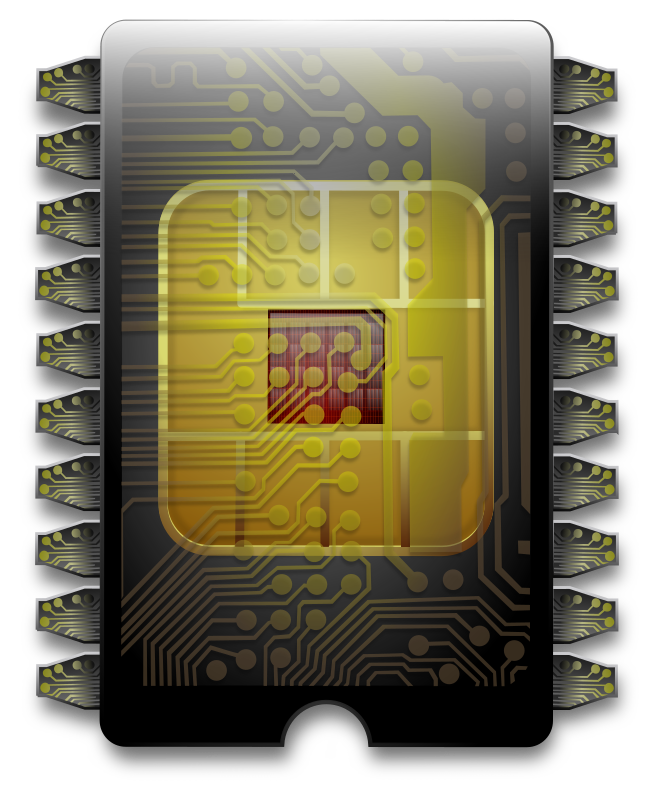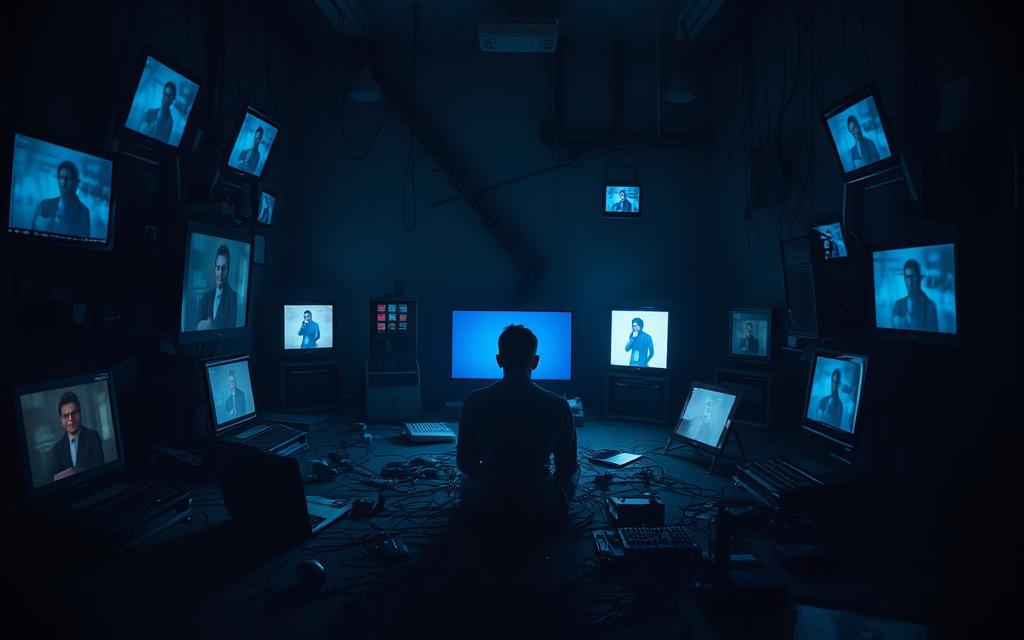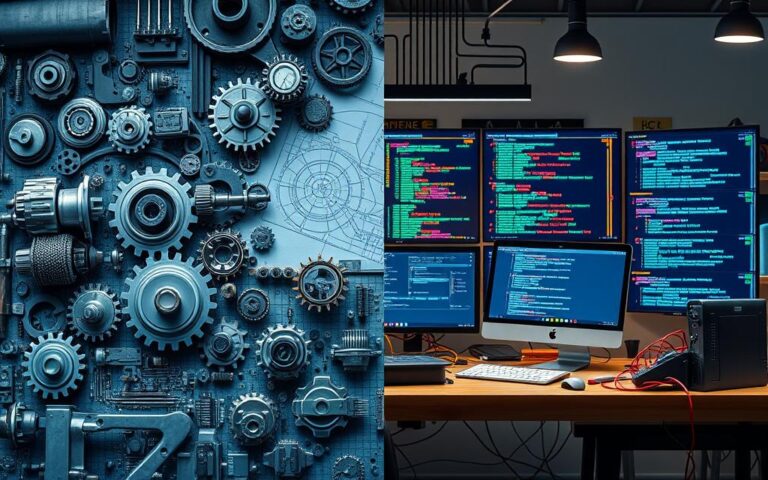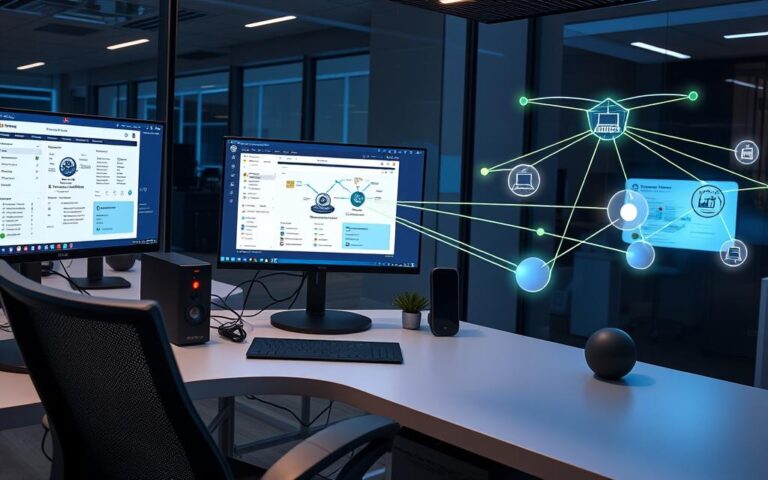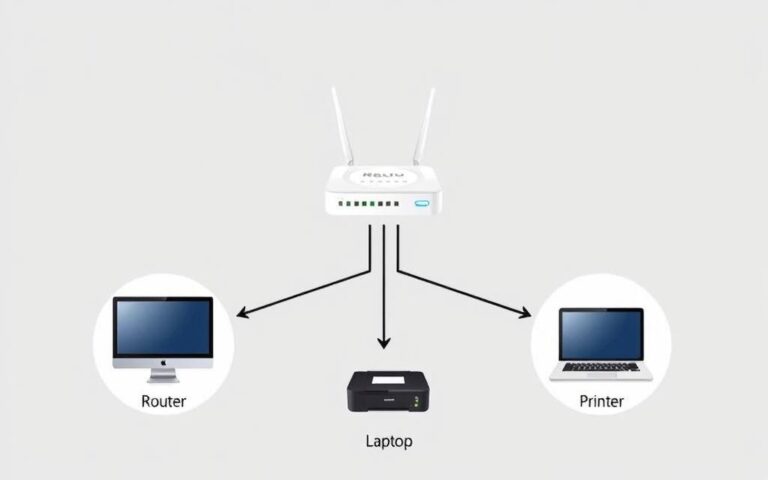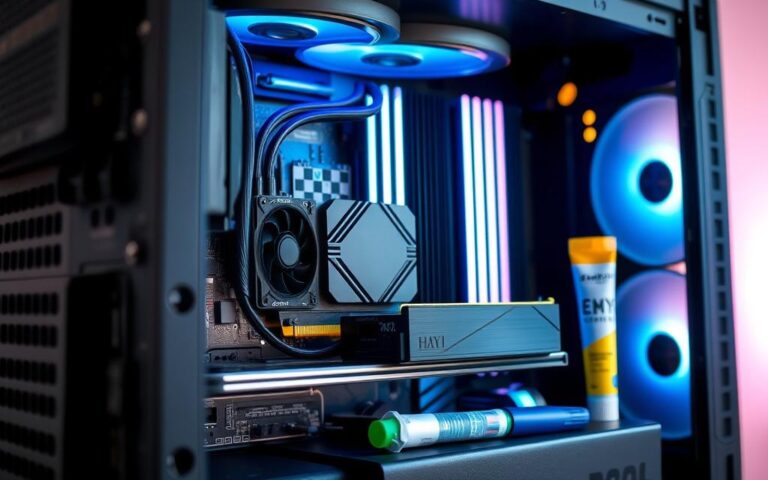how technology negatively affects mental health
Today, the swift march of technology raises mental health concerns. A lot of studies show that tech, especially too much social media and smartphone use, can harm our mental well-being. People who use social media a lot often feel more anxious and depressed. They also feel worse about themselves and more alone. The constant buzz of notifications and the pressure to keep up can really weigh on someone’s mind.
Too much tech use can also hurt our bodies, causing things like back and neck pain, headaches, and sore eyes. And this physical discomfort can make mental health issues worse. Interestingly, 76% of adults think technology helps them reach mental health resources. It’s important, then, to look at both the good and the bad sides of technology on our mental health. This article will dive into the complex relationship between technology and mental health, and discuss ways to make technology work for us, not against us.
Introduction to Technology’s Impact on Mental Well-Being
Technology has become deeply woven into our daily lives, changing how we interact and bond. In this era, its effects on mental health are mixed. While digital tools can help us connect and quickly find information, they can also make us feel lonely, anxious, and not good enough.
Studies show a concerning link between too much tech use and mental health problems. For example, a study by Primack et al. (2017) found that young adults in the US using many social media sites tend to feel more depressed and anxious. Since 2010, more screen time, especially among teens, has boosted this trend.
Too much technology use can cause psychological distress. Liu et al. (2020) discussed the mental health struggles of people isolating during the COVID-19 pandemic, highlighting the importance of social support. Moreover, internet addiction, which is common in youth, can cause issues like depression, low self-esteem, and feeling alone.
Though technology offers tools for better mental health, such as apps and online therapy, we must be careful. This article will explore the complex challenges of technology’s widespread role in our lives, emphasizing the need for balance.
The Link Between Prolonged Technology Use and Mental Health Issues
Prolonged technology use has sparked major concern regarding mental health. It shows that children and teens face mental health problems from too much screen time. Understanding these impacts is key for our well-being.
Associated Conditions: Anxiety and Depression
Studies show a strong connection between technology overuse and increased anxiety and depression symptoms. During the COVID-19 pandemic, 61.7% of children used smartphones extensively. This has led to feelings of inadequacy, driven by too much social media. People often compare themselves to the perfect lives they see online, feeling left out and distressed. Heavy social media users feel lonely up to 73% of the time, unlike 52% of light users. This shows how online platforms can make mental health worse.
Physical Health Consequences Affecting Mental Well-Being
Too much screen time also harms our physical health, affecting our mental state. Issues like neck pain, headaches, and bad posture stem from prolonged screen use. These problems can lower life enjoyment, raise stress, and reduce emotional strength. Eye strain and insomnia from screen use can make anxiety and depression symptoms worse. This shows how interconnected our physical and mental health are. Regulating screen time is crucial, especially for kids.
To keep a healthy lifestyle in this digital era, monitoring technology usage is vital.
Social Media’s Role in Mental Health Decline
Social media sets the stage for negative mental health effects. Comparison culture deeply affects our self-esteem. Users often compare their lives to the polished images others post. This can lead to feeling inadequate and a drop in self-esteem.
Comparison Culture and Decreased Self-Esteem
Sites like Facebook, Snapchat, and Instagram act as stages for showing off perfect lives. Seeing these can make people feel their lives don’t measure up. Additionally, about 10 percent of teens face bullying on these platforms. This increases anxiety and depression. A study suggests heavy use of these sites makes people feel lonelier, showing social media’s broad impact.
Cyberbullying and Its Emotional Toll
Social media anonymity can worsen cyberbullying, causing significant emotional pain. In Saudi Arabia, with high social media use, the youth face mental health challenges. About 20.2% of young people suffer from mental health issues. Social media likes and comments greatly affect emotional health. This can lead to feelings of isolation and an increased risk of anxiety, depression, and suicidal thoughts. The emotional impact changes how we form personal connections.
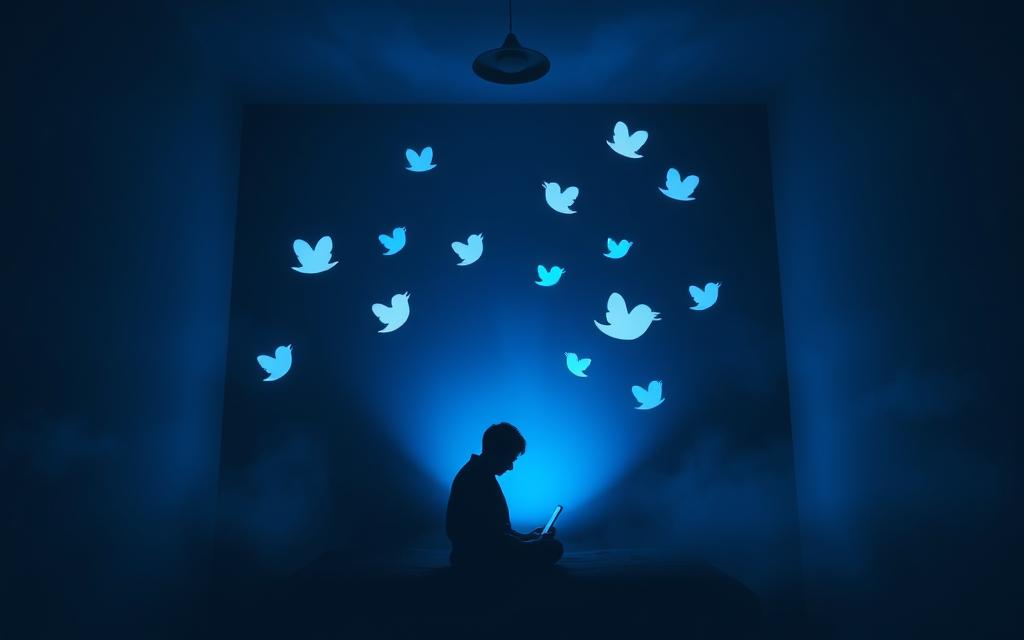
Effects of Sleep Disruption Due to Technology
Technology has a big impact on how well we sleep, especially in younger people. The blue light from screens makes our natural circadian rhythms go off track. This makes it hard to fall asleep. Kids and teens are more at risk and face health problems due to it.
Blue Light Exposure and Circadian Rhythms
A lot of studies show the harm of blue light, especially before sleeping. Over half of the teens bring their phones to bed, and many text even with the lights off. This messes up their sleep. Kids who use mobile devices often feel anxious, wake up at night, and don’t sleep well.
More kids are getting mobile devices, with a huge increase seen from 2011 to 2013. This rise in screen time can harm mental health. It can also lead to weight gain. This shows how disrupted sleep affects both our minds and bodies.
Consequences of Poor Sleep Quality on Mental Health
Lack of sleep does more than just make us tired. It can make us more likely to have mental health issues like depression and anxiety. People who don’t sleep well often find it hard to control their emotions. This makes them more prone to mental health problems.
Studies find that students glued to screens sleep less and face more mental health challenges. Shockingly, only a small number of young people in Utah get enough sleep. This highlights how important it is to look into how screen time at night affects our mental wellbeing.
How Technology Negatively Affects Mental Health
The way we chat online has changed how we bond, often missing real emotional ties. This lack of depth can make us feel alone, hurting our mental health. Even as tech keeps us in touch, many feel cut off during their online chats.
Challenges in Digital Communication and Isolation
Social media is a big part of our day, but too much can make us feel lonely. Studies show 73% of those who are always on social media feel lonely, unlike 52% of those who aren’t as active. Being online yet feeling alone shows how digital chats can harm our mental health.
The Pressure to Remain Connected
Feeling like we must always be online can stress us out. We end up replying to messages or checking for updates, even when we shouldn’t. A huge 70% of people would freak out if they lost their phone, showing we rely too much on tech. This need to stay connected can spike our stress and anxiety, leading to burnout.
Conclusion
The link between technology and mental health is complex. It brings both good and bad points. Today, with more than 5 billion people online and spending around 23 hours a week on social media, it’s clear how big this issue is. It’s worrying that nearly half the users say they face mental challenges due to their digital use.
To keep mentally healthy, we must manage our tech use wisely. This includes watching how much time we spend on screens. About 82% of people aware of their tech addiction are trying to cut down. By finding a balance and spending more time offline, we can lessen tech’s negative effects.
Our main aim should be improving our mental health. This might mean connecting more with others or getting help for tech-related issues. For further information on this important subject and tips, click here.
FAQ
How does prolonged technology use affect mental health?
Long hours on technology can result in mental health problems, such as higher anxiety and depression. This happens especially with too much social media use. It makes people feel less than others and alone, hurting how they feel inside.
What physical health issues are associated with technology use?
Using technology for too long can cause physical issues like pain in the neck, back, headaches, and tired eyes. These problems make mental well-being worse. They increase stress and make people less happy with their lives.
How does social media contribute to mental health challenges?
Social media creates a culture where everyone compares themselves to perfect lives seen online. This can make people’s self-worth drop. It leads to more worry, sadness, and mental strain.
What is the impact of cyberbullying on mental health?
Cyberbullying severely affects emotions, causing intense anxiety, sadness, and a feeling of being alone. The victims feel caught in their digital spaces. This makes their mental health get worse.
How does screen time affect sleep quality?
Screen light messes with body clocks and sleep chemicals, causing sleeping troubles and poor sleep. Not sleeping well is closely linked to feeling more anxious and depressed.
What are the mental health consequences of poor sleep quality?
Not sleeping well can make it hard to think clearly, control emotions, and stay mentally well. This makes the negative sides of using technology too much even worse, leading to more anxiety and low mood.
Why do individuals feel socially isolated despite being connected online?
Online, interactions often don’t have real emotional ties, making people feel cut off. Feeling forced to always be online can stress people out. This stress leads to feeling isolated and worse mental health.
What steps can individuals take to mitigate these negative effects?
People can change how they use technology by limiting screen time and doing things that make them feel good mentally. Getting help from professionals can also help overcome these mental challenges.
